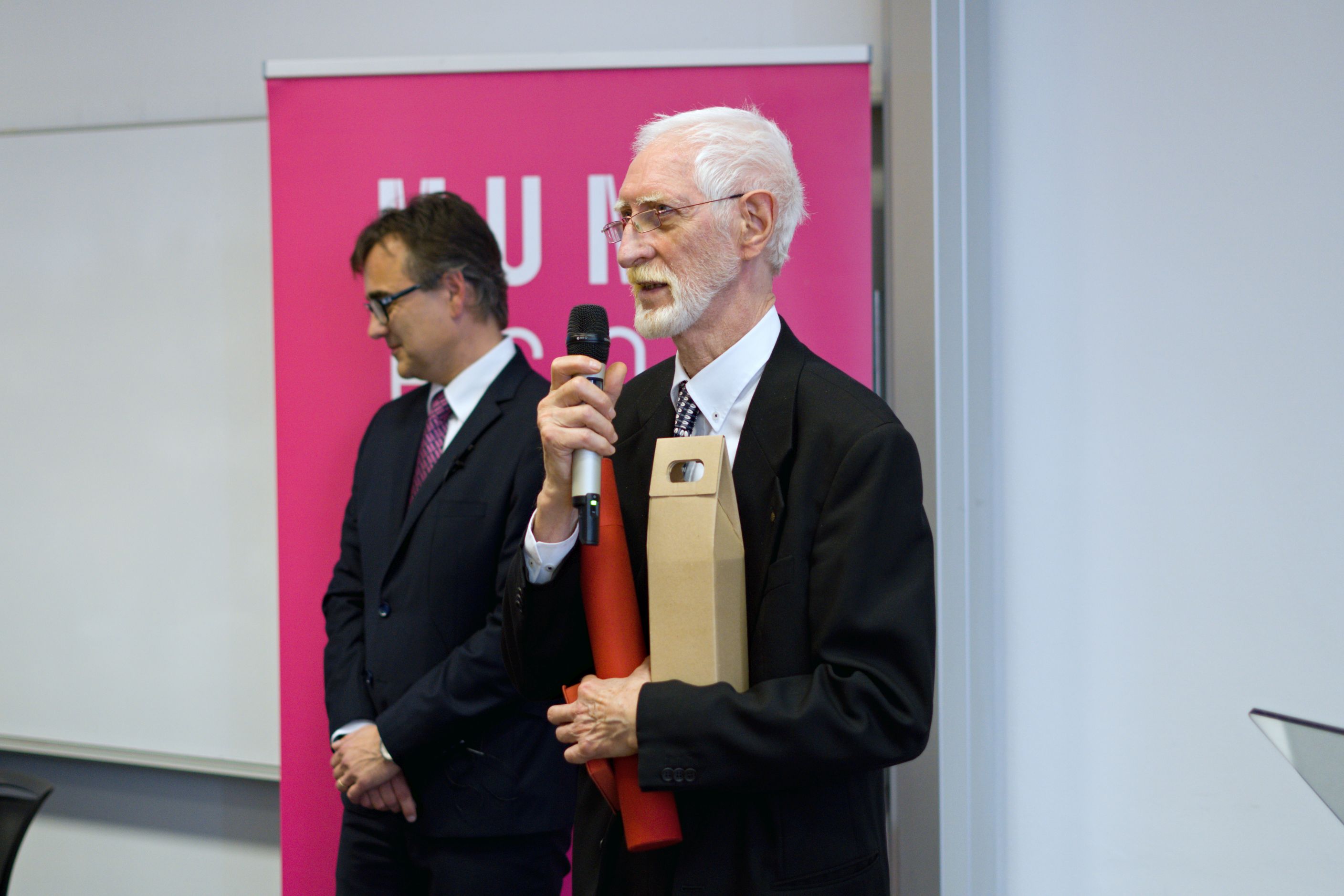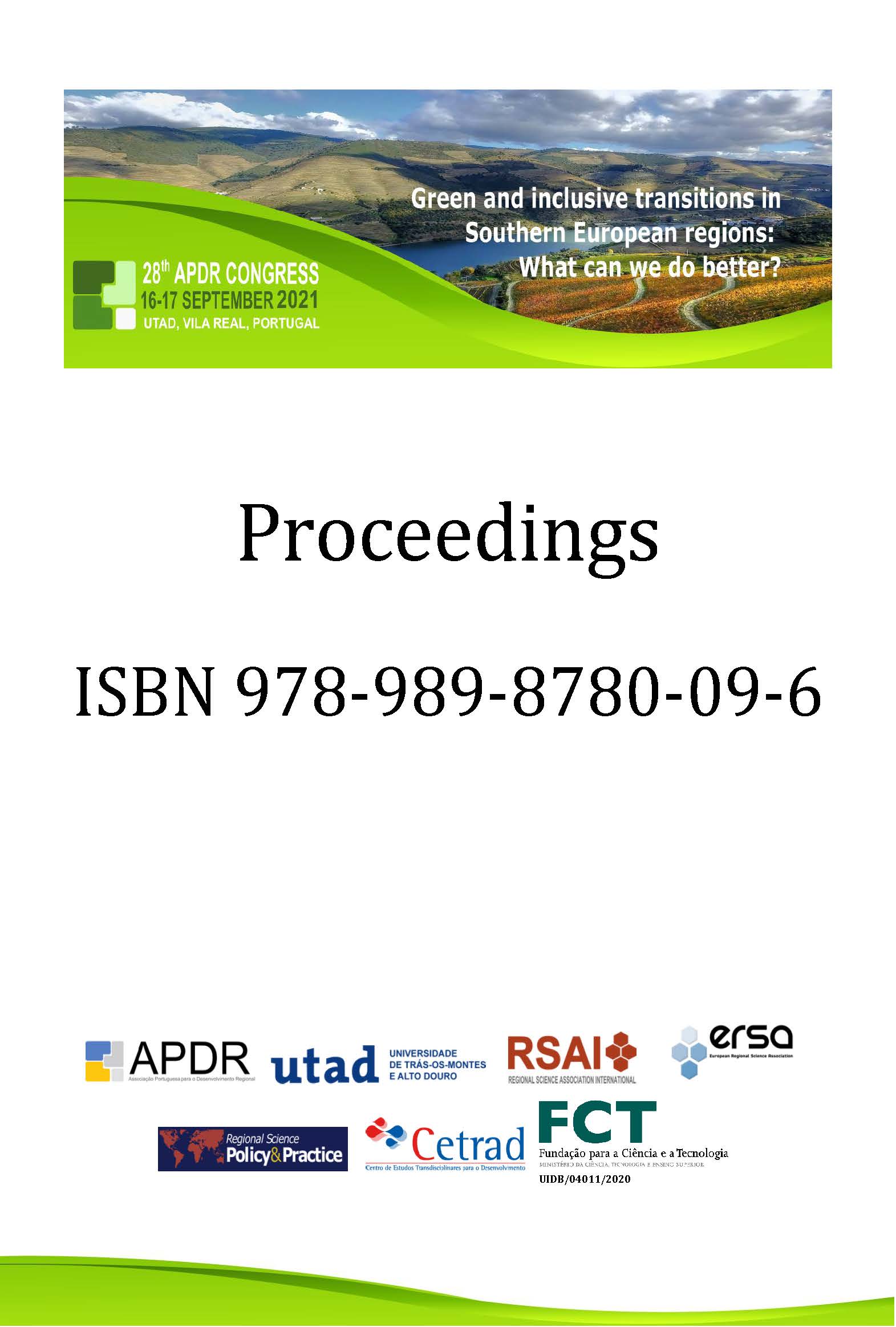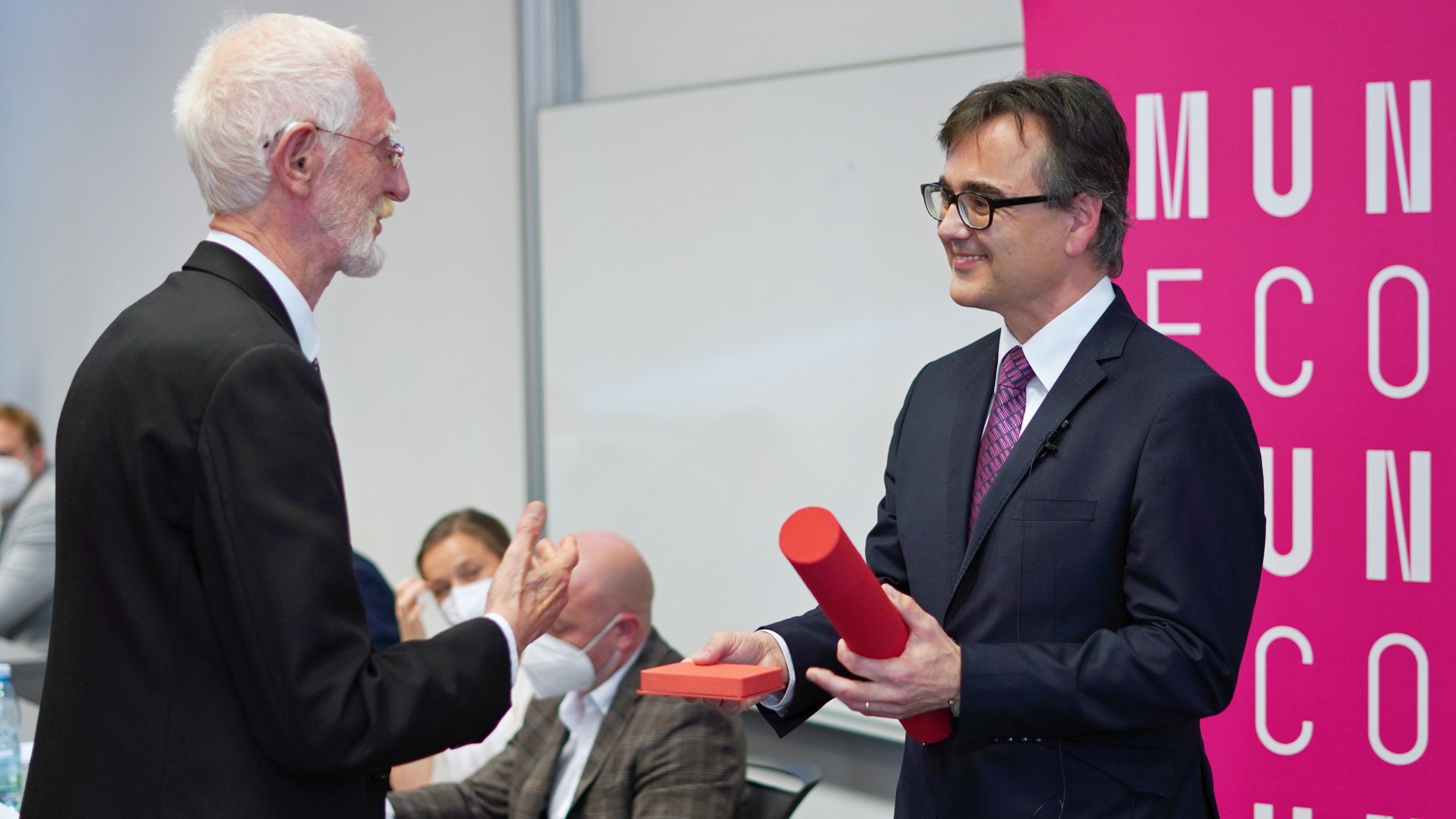Call for Papers | Workshop of NECTAR Cluster 4, Université Gustave Eiffel, Marne-la-Vallée, France, March 17-18 2022
Please find enclosed the call for papers to a workshop of NECTAR Cluster 4 which will be held at Université Gustave Eiffel, Marne-la-Vallée, France, March 17-18 2022. The workshop is about "Teleworking, commuting and the housing market in the post COVID19 era".
Also note that the meeting can be combined with an UERA Thematic Working Group on Accessibility that is planned the day before the event, March 16, on the quarter-hour city, also in Marne-la-Vallée.
The Annals of Regional Science, Volume 67, Issue 3 - New Issue Alert
|
|
||||
|
|
|||
|
|
|
|
|||
|
|
|
|||
|
|
|
|||
|
|
|
|||
|
|
|
|
|||
|
|
|
|||
|
|
|
|||
|
|
|
|
|||
|
|
|
|||
|
|
|
|||||
The latest issue of Regional Science Policy & Practice are available! Volume 13, Issue 5, October 2021
|
|
Regional Science Policy & Practice Volume 13, Issue 5 Special Issue:Tackling with societal, technological and climate changes in peripheral territories 1403-1721
October 2021
Luisa Alamá Sabater, Vicente Budi Orduña, Emili Tortosa Ausina
|
ISSUE INFORMATION
Issue Information
TACKLING WITH SOCIETAL, TECHNOLOGICAL AND CLIMATE CHANGES IN PERIPHERAL TERRITORIES – INTRODUCTI0N
Tackling with societal, technological, and climate changes in peripheral territories
Luisa Alamá-Sabater, Vicente Budi, Emili Tortosa-Ausina
TACKLING WITH SOCIETAL, TECHNOLOGICAL AND CLIMATE CHANGES IN PERIPHERAL TERRITORIES – ORIGINAL ARTICLES
María Pilar García-Alcober, Ana Isabel Mateos Ansótegui, María Teresa Pastor Gosálbez
Segregation of high-skilled workers and the productivity of cities
Rodrigo Diaz, Nicolas Garrido, Miguel Vargas
Public expenditure on disability (PED) in Europe: An efficiency analysis
Financial inclusion and exclusion across Mexican municipalities
Agencies, scales and times of path creation: The case of IoT in Toulouse
ORIGINAL ARTICLES
BOOK REVIEW
Portuguese Section: PROCEEDINGS NOW AVAILABLE! 28th APDR Congress, September 2021, UTAD, Portugal
28th APDR Congress
September 2021, UTAD, Vila Real
Green and inclusive transitions in Southern European regions: What can we do better?
ISBN: 978-989-8780-09-6
Format: Online
DOWNLOAD - http://apdr.pt/data/documents/ATAScongress2021.pdf
Call for Paper | Input-Output Workshop, March 9-11, 2022
Dear IO Community,
We would like to invite you to participate in the Call for Paper for next year's I-O Workshop. The workshop will be held from March 9-11, 2022.
The format is still uncertain at this stage. We favor a face-to-face event in Osnabrück, possibly supplemented by a hybrid format. However, a purely online event cannot be ruled out entirely at the moment. We ask for your understanding that we cannot commit ourselves here yet.
Attached to the email is the Call for Paper in English and German. All further information can be found there.
If you have any questions, please feel free to contact me.
Best regards.
Anke Mönnig
On behalf of the entire organization team
ANZRSAI Conference Second Call for Papers
The Second Call for Papers for the ANZRSAI 2021 conference has been published on the ANZRSAI website.
The conference will be a hybrid conference, Monday 6th and Tuesday 7th December 2021.
Registered participants can join us in person at the City Campus of RMIT in Swanston Street, Melbourne, or can join us on-line through Microsoft Teams.
The Second Call for Papers can be downloaded here. The deadline for submissions is 31 October 2021.
Call for Applications: ERSA Winter School 2022 - Extended deadline
 
ERSA Winter School 2022 Call for Applications Extended deadline until 31 October 2021Target: Smart Young Researchers willing to learn more on #dataScience #spatial #regionalscience and receive precious feedback on their research: Don't miss this extra chance! |
|
|
|
|
|
|
Dr. Manfred M. Fischer received the Bronze Medal of Masaryk University in Brno (Czech Republic)
Dr. Manfred M. Fischer received the Bronze Medal of Masaryk University in Brno (Czech Republic) for his contribution to establish the Regional Economics Ph.D. program and his contribution to the development of the Faculty of Economics and Administration of Masaryk University.
The ceremonial act of presenting the medal in front of the faculty academic community and members of the Scientific Board took place on 2021-10-11 as part of the celebration of the 30th anniversary of the Faculty.
Congratulations to Dr. Manfred M. Fischer on the outstanding achievement!

The latest issue of Papers in Regional Science is available! Volume 100, 5 (October 2021)
Papers in Regional Science
|
ISSUE INFORMATION
![]() Free Access
Free Access
Pages: 1111-1112 | First Published: 09 October 2021
FULL ARTICLES
Social capital, social economy and economic resilience of Italian provinces
Giuseppe Terzo
Pages: 1113-1135 | First Published: 20 May 2021
Unpacking the U‐shaped relationship between related variety and firm sales: Evidence from Japan
Ren Lu, Qing Song, Ting Xia, Daguo Lv, Torger Reve, Ze Jian
Pages: 1136-1157 | First Published: 22 April 2021
Quantifying fiscal multipliers in Italy: A Panel SVAR analysis using regional data
Matteo Deleidi, Davide Romaniello, Francesca Tosi
Pages: 1158-1177 | First Published: 07 June 2021
Welfare benefits in highly decentralized fiscal systems: Evidence on interregional mimicking
Luis Ayala, Ana Herrero, Jorge Martinez-Vazquez
Pages: 1178-1208 | First Published: 15 April 2021
![]() Open Access
Open Access
Modeling the spread of COVID‐19 in New York City
Jose Olmo, Marcos Sanso-Navarro
Pages: 1209-1229 | First Published: 11 May 2021
![]() Open Access
Open Access
Measuring the impact of ride‐hailing firms on urban congestion: The case of Uber in Europe
Xavier Fageda
Pages: 1230-1253 | First Published: 19 April 2021
Can the internet reshape the national city size distribution? Cross‐country evidence
Yu Wang, Bindong Sun, Sixu Wu, Wan Li, Tinglin Zhang
Pages: 1254-1272 | First Published: 03 June 2021
Xiaoxuan Sun, Diana Mok, Jinfei Wang
Pages: 1273-1294 | First Published: 08 June 2021
![]() Open Access
Open Access
Growth and inequality in the Mexican states: Regimes, thresholds, and traps
Juan Gabriel Brida, W. Adrian Risso, Edgar J. Sánchez Carrera, Verónica Segarra
Pages: 1295-1322 | First Published: 12 May 2021
RESEARCH NOTES & COMMENTS
![]() Open Access
Open Access
Standard modularity is unsuitable for functional regionalization of spatial interaction data
Lucas Martínez-Bernabéu, José Manuel Casado-Díaz
Pages: 1323-1330 | First Published: 14 May 2021
BOOK REVIEW
Michelle J. White
Pages: 1331-1333 | First Published: 07 June 2021
Research internship opportunity at the OECD Centre for Entrepreneurship, SMEs, Regions and Cities
Dear Colleagues,
I hope this message finds you well.
I would like to signal a research internship opportunity for graduate students at the OECD Centre for Entrepreneurship, SMEs, Regions and Cities.
We are looking to recruit several interns to work on a range of ongoing projects that require good analytical, analysis and writing skills. We offer a dynamic and stimulating environment and hands-on experience in policy analysis and empirical research in an intergovernmental organisation.
The internship can be virtual or in-person (depending on the sanitary situation and other circumstances); in the latter case, interns can be onboarded in Paris or in Trento, Italy. The start date is negotiable – we prefer selected candidates to join us in early 2022 but other timing can be agreed upon on a case-by-case basis. The duration of the internship is 3 to 6 months (the latter is preferred) with a possibility of extension up to 12 months. The OECD does not pay a salary but offers a contribution to living expenses slightly over EUR700 for each month of work.
More details and how to apply are here.
The deadline is 17 October 2021.
Please forward to anybody you feel would be a good candidate or to your networks to spread the word.
Thank you lots for your help.
With kind regards,
Alexandra
|
Alexandra Tsvetkova Centre for Entrepreneurship, SMEs, Regions and Cities |
About Us
The Regional Science Association International (RSAI), founded in 1954, is an international community of scholars interested in the regional impacts of national or global processes of economic and social change.

 The Annals of Regional Science.
The Annals of Regional Science. 




